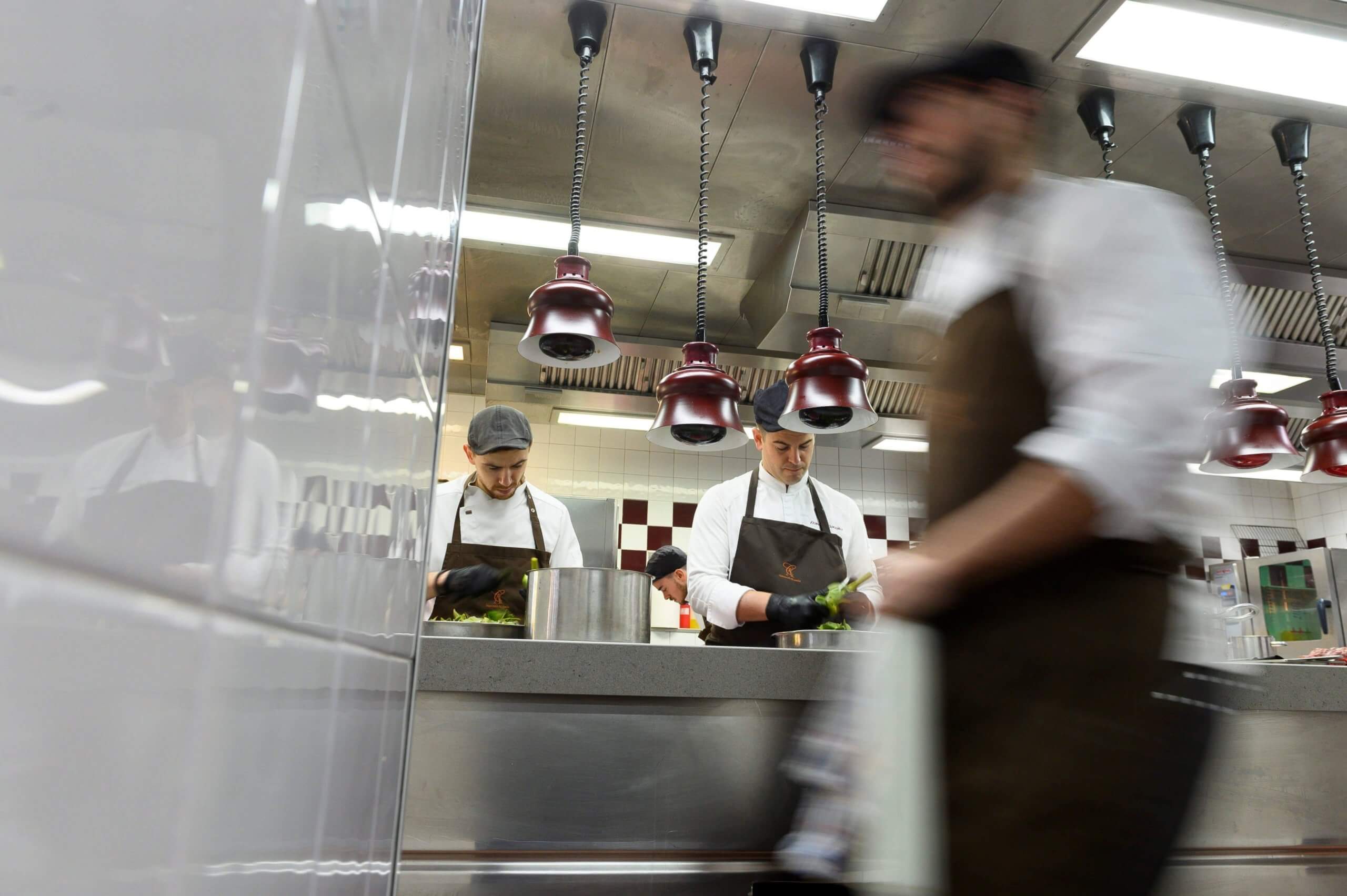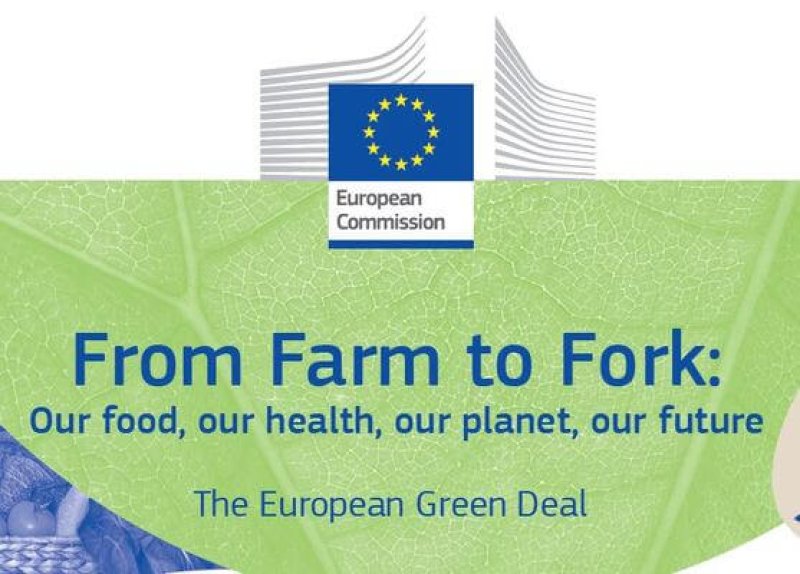While Farm to Fork has gotten a lot of attention inside the EU, this is the first time since COVID that F2F and the significant challenges facing the global food system have been addressed by leaders at this high level in an international forum. What they said told us a lot about how well our global society will respond to the next crisis.
 Much of the conversation was focused on trade, something critically important to get right if we hope to be truly food secure. But to fully understand the trade challenges, we need to grasp the farming challenges. As a science journalist and founder of a science education and outreach nonprofit, I’ve spent decades investigating food production and sustainability. Yesterday, on the webinar, I focused on the not inconsiderable challenges to growing enough food—our most fundamental human resource—and how we meet that challenge while also reducing our environmental footprint and greenhouse gas emissions.
Much of the conversation was focused on trade, something critically important to get right if we hope to be truly food secure. But to fully understand the trade challenges, we need to grasp the farming challenges. As a science journalist and founder of a science education and outreach nonprofit, I’ve spent decades investigating food production and sustainability. Yesterday, on the webinar, I focused on the not inconsiderable challenges to growing enough food—our most fundamental human resource—and how we meet that challenge while also reducing our environmental footprint and greenhouse gas emissions.
Linking farming and sustainability
Reading the F2F document, it struck me that most people in Europe and the wealthier parts of the world believe that we’ve basically solved what has for most of human history been life’s primary challenge: getting enough to food to eat.
Here’s a wake-up call. Food security is emerging as the number one issue of our time. And F2F’s proposed solution—dramatically scaling up organic farming—is a prescription for disaster. It will not only increase hunger, it will undermine every its environmental goals as well.
It’s time we got a reality check on food insecurity. The UN estimates that 821 million people were suffering from hunger in 2018. The number was rising even before COVID, but the pandemic could make it worse. Estimates are an additional 10,000 children every month will die from malnutrition as farms are cut off from markets and food aid no longer reaches hungry populations.
COVID-19 may seem an exceptional circumstance, but plenty of disasters roil the world. Most frightening, East Africa, the Middle East and much of India are presently being ravaged by a locust plague that is stripping farms bare. Some 22 million people in Africa alone are facing starvation.
But locusts are just one threat among thousands of pests and diseases threatening food production worldwide. Myriad other plant pests, viral, bacterial and fungal crop diseases, droughts and other weather events threaten agricultural production. Don’t assume this is just happening in Africa and Asia, either. The varroa parasite that sickens and kills honeybees is an invasive species that only arrived in Europe in the 1960s. The massively destructive Fall Army Worm which jumped across the Atlantic to Africa a few years ago could reach Europe any moment. So could the locusts.
Add to this the fact that climate change could drastically alter growing conditions, increasing drought and other destructive weather patterns, and Black Swan events, like COVID, are inevitable.
Consider these threats in light of the fact that we will need to increase food production between 70 and 100 percent by 2050. This is not a prediction; this is a fact.
Reckoning on farming and food
One often hears claims that we grow enough food today—in terms of calories—to feed every person on the planet. That’s would be true if people could eat statistics. In the real world, it would be true if crops were never lost to pests in the field or spoiled in storage before they got to market, if the massive global challenges of transportation and distribution just magically disappeared, and then we assigned a food monitor to every restaurant and home in the world to make sure that not one scrap of food was wasted, or rotted before you ate your assigned calorie allotment for the day.
In the real world, too, the billions of people who now subsist on 1,000 calories a day aren’t going to be satisfied with meagre bowls of rice but will insist on improved diets to match their gradually improved living standards.
Certainly, we can and should cut waste and encourage people to eat more balanced diets. But those aren’t game-changers when it comes to making food and farming more sustainable.

The world today is facing a reckoning on agriculture. We need to decide whether we are going to address the issue seriously, or if we’re just going to pretend that this perfectly predictable crisis, like the next pandemic, isn’t going to happen.
Which brings us back to Farm to Fork. It’s an impressive manifesto. But as you drill down into the details, examining it with the eyes of someone who has struggled with sustainability challenges for upwards of 30 years, it is deeply disappointing. The entire strategy, in the end, is predicated on the idea that we can address food security with agricultural systems that have already come up short.
Organic myths
Most eyebrow-raising: the primary tool to transform European farming is by embracing the magical fairy dust of organic farming and rejecting the use of cutting-edge technologies, such as gene editing and transgenics, that offer the only suite of tools proven to increase food production and lower the impact of unnecessary chemicals.
As part of this new sustainability equation, there are calls to cut conventional pesticides by 50 percent, regardless of their effectiveness or toxicity. Why? That’s never addressed. It can’t be over concerns about health or environmental impacts. Europe appears set on banning the herbicide glyphosate, which is less toxic than salt and has been found safe by 18 major global organizations, including four in Europe.
Yet, the EU gives a pass to organic pesticides like copper sulfate—which is a human carcinogen and kills beneficial insects—after lobbying by organic advocates—and this after a scathing assessment by the European Food Safety Authority on its potential hazards. FTF seems to adopt, without evidence or analysis, that organic food production, is safer, and equally productive.
Which brings us to the most egregious problems with the Farm to Fork fantasyland. As the organic industry itself acknowledges, organic farming is as much as 40 percent less productive than conventional farming. As a state-of-the-art study in the prestigious journal Nature Communications comparing conventional and organic agriculture and its impact on carbon emissions in England concluded, just last year, transitioning from conventional farming to organic would require a massive expansion of farmland and pump 20 and 70 percent more greenhouse gases into the atmosphere.
As there is almost no arable land left in the world, the move to organic would lead to the clear-cutting of forests to create more farmland. It would likely lead to the devastation of wildlife habitat and biodiversity. In essence, Europe would be exporting to the poorest regions of the world its environmental “externalities”, as economists call it, all because of its organic fixation.
Beyond Farm to Fork: Embracing innovative agricultural technology
Boutique ideas like urban farming and local production or reverting world agriculture to more “natural” low-yield, land-intensive and disease-vulnerable farming methods are the luxuries of an affluent society. Organic farming is like an impulse buy, and such thinly supported decision-making has no place in a document that purports to seriously address the enormous challenges facing the world.

Do we want to feel virtuous or actually solve real-life problems? Modern technology offers solutions, first and foremost: gene-editing that can make plants more resistant to disease, drought, and pests; more nitrogen efficiency (crops would need less or no chemical fertilizer); safer (peanuts without harmful proteins; wheat without the gluten deadly to people with celiac disease); healthier (crops with heart-healthy omega 3. The advantages are endless—if we don’t regulate this promising technology to death.
It may not be fashionable to say this, particularly in Europe, but we will continue to need targeted chemical pesticides. Should we be judicious and careful? Yes. But let’s be guided by science, not chemophobic scaremongering.
We need a food system that is efficient, productive, and environmentally sustainable. Most important, it must be based in reality, not wishful thinking.
Jon Entine is Executive Director of the Genetic Literacy Project and a life-long journalist with 20 major journalism awards. Follow him on Twitter @JonEntine
A version of this article originally ran at NewEurope and has been republished here with permission.































